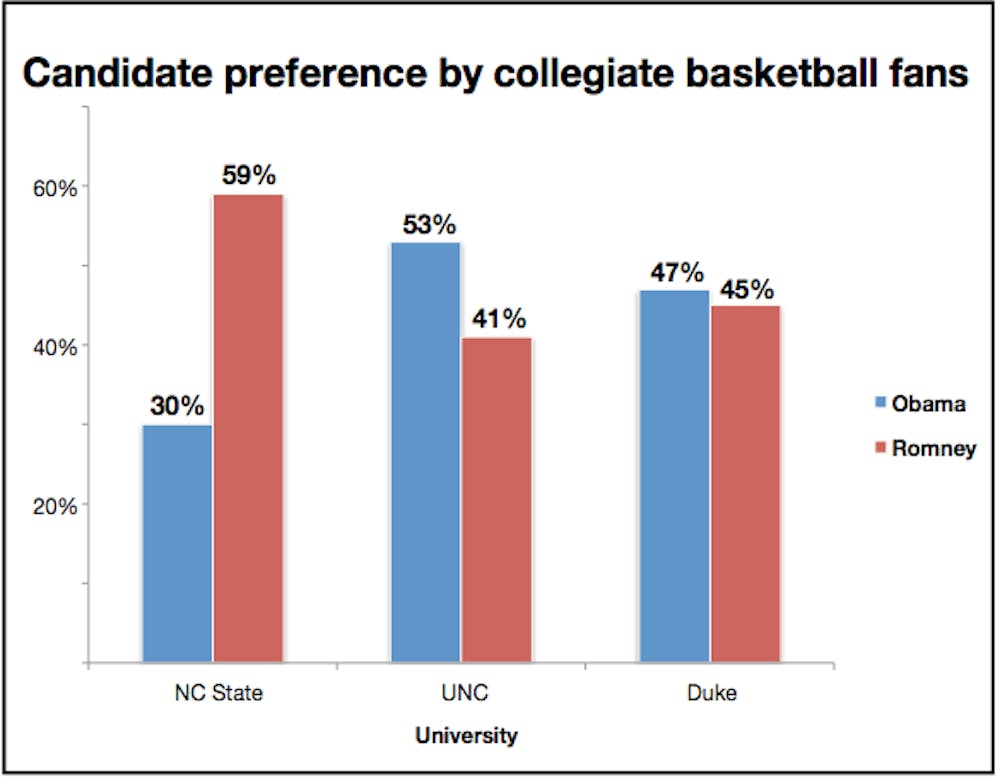A recent Elon University Poll revealed North Carolinians’ collegiate basketball preference correlates with one’s presidential choice. The majority of North Carolina State fans supported Republican presidential candidate Mitt Romney while those who support University of North Carolina-Chapel Hill’s team favor President Barack Obama and Duke University supporters are nearly divided, according to the poll conducted Oct. 21-26.
Elon University was not included in the results because the number of respondents who identified as Phoenix fans produces too small of a sample size to yield conclusive results, according to Kenneth Fernandez, director of the Elon University Poll. Nevertheless, from observation of the Elon community, Fernandez and students have largely determined the campus is divided on the political spectrum.
“A private school attracts people from higher socioeconomic background,” Fernandez said. “They’re concerned about the size of government, they’re looking for jobs very soon and concerned about the economy. Mitt Romney has been seen as a better candidate to handle that issue.”
But Obama typically attracts votes from the younger demographic, leading Fernandez to predict the Elon community to be evenly split between the contenders, he said.
“I think because of economic background people are economically more conservative,” said senior Brittany Woodard.
But debates regarding Chick-fil-A’s presence on campus demonstrated students with both liberal and conservative beliefs occupy campus, she said.
Furthermore, discussions in class and among friends have indicated a division in support for the presidential candidates. Junior Nick Schneider said he observed a discrepancy between the political views of his friends and those expressed in class, indicating a variety of views present at Elon.
“Half of my friend group will always talk about Romney’s points and his support, and I will go to class, and most of my classmates are Obama supporters,” Schneider said.
He attributed the diversity of opinions to Elon’s classification as a private school.
While freshman Elizabeth Cozine acknowledged that political ideologies are not strictly divided geographically, the representation of both northern and southern states on campus contributes to the development of the bipartisan atmosphere, she said.
“A lot of people from the north are attracted to the school, and a lot of northern states vote democratic in the Electoral College,” she said. “But at the same time, you have a lot of southern people who do attend the school, and a lot of southern people do identify with conservative views.”
Fernandez applied a similar rationale to the political division within Duke’s fan base. The university’s fan base extends beyond the North Carolina population, generating support from individuals across the country, he said.
“There are so many people who like Duke because it’s been so successful, so it spans partisanship,” Fernandez said.


